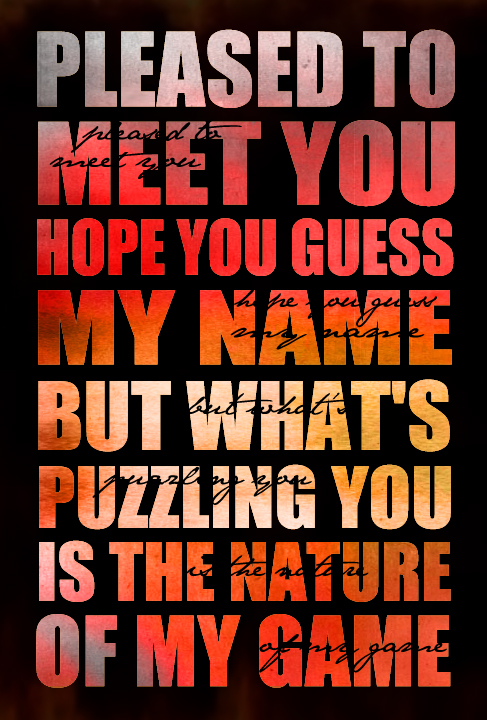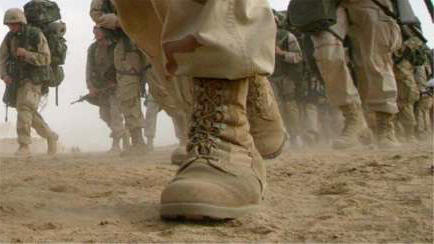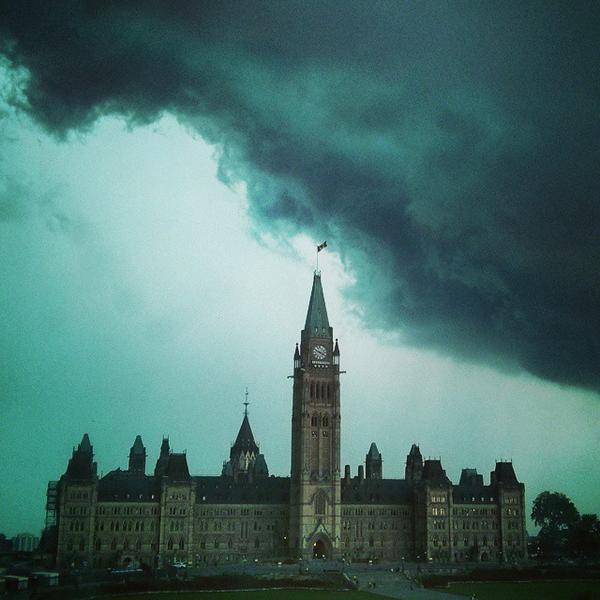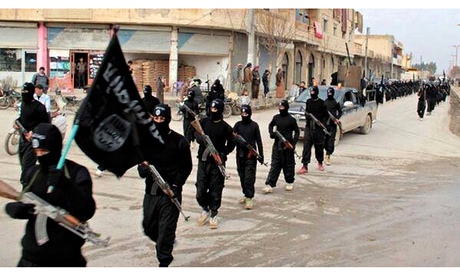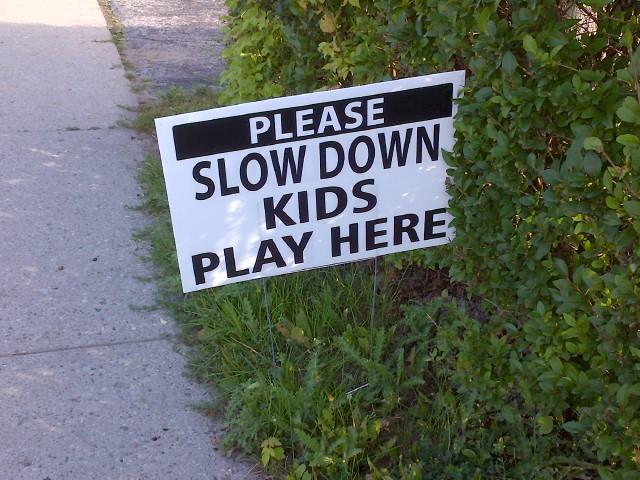
Is life a race to the finish line? It often feels that way. We're rushing out the door to work, rushing to complete tasks, rushing to pick up the kids before we have to start getting fined for overtime.
It's a competitive world out there - to get ahead, you have to do everything faster than the other guy. Time is money, etc.
Since time is so precious, we don't want to waste it on things that don't provide a rapid return on investment (ROI). What does that mean, in practice? It means people who don't provide value don't get your time, unless they pay for it. Communication has to be distilled down into talking points with as little detail as possible, since no one has the time nor inclination to understand big ideas. When you look for wins, you focus on what provides the most for the least effort - ie, the low hanging fruit.
That's the frame in which our society works. This would be the same society that's cracking at the seams from structural neglect. Anything that can be kicked down the road has been, to the point where we're almost out of road. That applies to infrastructure repair, upgrades to our education, healthcare, social service and even democratic apparatus.
It should therefore come as no surprise that a growing number of people are falling through the cracks.
Missing aboriginal women. Persons with mental health in the justice system, or the hospital. Cardiac patients who fall into patters of expensive recidivism before they die. Presenteeism. Substance dependence, ranging from functional alcoholics to Xanax prescriptions to the use of harder drugs, like crack.
Too many people are falling behind.
What of it, though? This is a race to the finish line - those who can't keep up get left behind, right? That's how it's supposed to be.

So the driver maximizing their time by talking on their cell while rushing lights - if they hit a pedestrian or a cyclist, it's kinda their fault, right? They should've seen the busy guy and stayed out of their way. If they didn't, they fall behind, or down, or step out of the race prematurely as it were.
I've seen something similar in business. My favourite example was a consulting firm who build staff time by the hour; this firm made a ridiculous amount of cash, but they wasted a ton of it, too. By rushing, by valuing the boss' time over the team's time, countless billable hours were lost as staff waited in meetings for the boss to arrive, or take a phone call, etc. Over the course of one week, this firm lost $20,000 in billable hours due to time mismanagement by the leadership.
The same was true of process and paperwork; the organizational system was so weak that expenses that could and should have been filed disappeared into the ether. More than this, everyone at the firm was constantly rushing, popping advil like candy. Communication was poor, because who had the time for empathy or clarity?
It's a story we see everywhere; there's no time for anything, we have to keep rushing forward.
Even our kids have to take a back seat to us getting ahead in the real world, making money to stay afloat and maybe have time to rest in that period of years between when we retire and when we die.
How many children are raised by daycare operators or nannies - or in lower income households, are latchkey kids? What does this experience do to their social development?
Oh well, we say. Would love to do more, but there's no time. No time.
We rush through our days because there's not enough time. We speed through neighbourhoods and cut corners because there is no time.
We fret and fume because of gridlock, queues, slow service providers because there's no time.
Yet what do we all look forward to? Those times when we get to slow down.
It could be after work, it could be vacation, it could be retirement. We busy ourselves to the point of heart palpitations, rushing to get to the point where we can rest.
In this mad dash, everything listed above falls through the cracks, which continue to widen.
Including our youth.
Recently, at a Why Should I Care mayoralty conversation, 19 year-old candidate Morgan Baskin told the crowd that her greatest asset was her future - all the time ahead of her that she could use productively. She expressed concern that the adults in the political room were squandering that future for her and other youth, which why she was running.

This isn't to say we don't want what's best for our youth; in fact, parents will often work harder and push their kids harder so that they may be competitive down the road, as in able to move even faster.
Yet how often do we vent about the notion that kids want to get from education to meaningful career overnight? How often are we telling them they have to take the time to work to get where they want?
Never does it occur to us that their inclinations are being shaped by the social influences around them - now is not the time for sociology, after all.
I was asked today if money makes the world go 'round. My answer is, no - physics makes the world go round, at the same speed, consistently. This steady pace will continue long after we as individuals, societies and even as a species have faded away.
What is money but an exchange system? It's a bridge for communication that helps us work together in something theoretically equaling a fair trade.
We like to say that time is money, but the truth is we are sacrificing our time for money - and doing a poor job of it, too.
Our mad dash to the finish-line has caused us to lose sight of where we're going. The journey there is increasingly becoming a harrowing experience. There's no gold medal at The End - so what are we racing for?
A quick little annecdote about Minister Yasir Naqvi. You'll note that he cleverly inserted a line in his quote about knocking on doors regularly, which he does.
Yasir, despite being a Minister and having busy work to do if he wants to increase his brand value for future ambitions has always, always made time to connect with his grassroots constituents. He does this, so far as I know, every week. It's something that matters to him and that he makes time for.
It should come as no surprise, then, that when elections roll around, Yasir's already got the goodwill of his constituents, which impacts his results.
Our time isn't money - our time is our most valuable commodity, because once gone it can never be returned.
The finish-line, of course, is when we die. There's no gold medal, no bonus, no 15 minutes after that.
We have to decide what we do with the time that is given to us. And as of right now, we're not getting nearly the value from it we could.
Slow down for the kids. A meta-statement if ever there was one.


